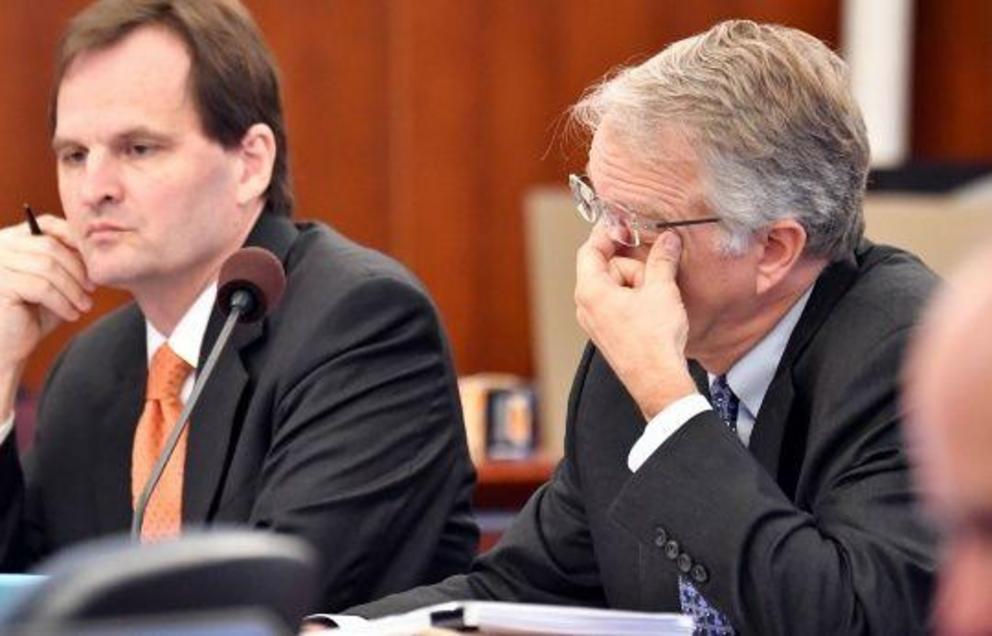US judge accepts hundreds of lawsuits against Monsanto
Scientists and attorneys are trying to prove the link between glyphosate and non-Hodgkin's lymphoma, a cancer that affects white blood cells.
A federal judge in California is allowing hundreds of lawsuits against Monsanto to move forward thanks to the efforts of experts linking the company's star weedkiller Roundup and cancer.
During weeks, Judge Vince Chhabria of the U.S. District Court for the Northern District of California listened to testimonies from scientific experts representing both Monsanto and several patients diagnosed with non-Hodgkin's lymphoma (NHL), trying to decide if the evidence was enough to make a case.
The plaintiffs claim that Monsanto, recently acquired by the German pharmaceutical giant Bayer, knew about the health risks of its weedkiller and has deliberately failed to warn consumers. Monsanto has always denied any connection between its agrochemical products and cancer, citing their own studies.
Even though Judge Chhabria though the plaintiff's evidence was “shaky,” he allowed the complaints to move forward as there was enough evidence “from which a reasonable jury could conclude that glyphosate can cause NHL at human-relevant doses.”
Before reaching his decision, Chhabria listened to the testimony of Beate Ritz, an epidemiologist at the University of California, who refuted the conclusion of the National Institute of Health that there was no connection between glyphosate and NHL, a cancer that affects white blood cells.
Lorelei Mucci, a cancer epidemiologist from Harvard, was brought in by Monsanto to counter Ritz's testimony, praising the study
"When you look at the body of epidemiological literature on this topic, there's no evidence of a positive association between glyphosate and NHL risk," she said.
Taking into account this and more testimonies, Chhabria decided that the was "at least a strong argument that the only reasonable conclusion one could draw right now is that we don't yet know.”
However, he wrote that the plaintiffs' attorneys will have to build a strong case to convince the jury there's an actual connection between glyphosate and NHL, as he considered it “rather weak.”
The judge dismissed some of the evidence presented by the plaintiff's experts, even calling them “junk science.” He also warned them about using public health assesments by the World Health Organization and its International Agency for Research on Cancer, in which they heavily relied, because the jury would use different standards when taking a decision.
Monsanto, now plainly “Bayern,” has expanded in all continents with an incredible speed despite its probable risks on health.
To Carlos Vicente, an activist and editor of the Spanish language journal “Biodiversity, Sustainability and Cultures,” the merge of Monsanto and Bayer represents a danger to “America's southern cone, with new agrochemicals due the glyphosate-resistant soy model has failed. Glyphosate will be replaced by new agrochemicals, stronger, more dangerous and aggressive towards communities.”
On Monday, the first case in which Roundup is said to have caused cancer was opened, brought by Dewayne Johnson, a 46-year-old father of two. "For the past 40 years, Monsanto has known the primary ingredient in Roundup can produce tumors in lab animals," Johnson's attorney Brent Wisner told a California state court. "Monsanto has gone out of its way to bully scientists and fight researchers.
Founded in 1901 in St Louis, Missouri, Monsanto began producing agrochemicals in the 1940s. It was acquired by Bayer for more than US$62 billion in June. Monsanto was one of the companies which produced the defoliant "Agent Orange," which has been linked to cancer and other diseases, for use by U.S. forces in Vietnam. It denies responsibility for how the military used it.
Monsanto's flagship herbicide Roundup was launched in 1976. The company soon thereafter began genetically modifying plants, making some resistant to Roundup. In 2015, the International Agency for Research on Cancer — a World Health Organization body — classified glyphosate as "probably carcinogenic," and as a result, the state of California listed it as carcinogenic.
However, its sales have continued and in February a judge blocked California from requiring that Roundup carry a label stating that it is known to cause cancer, saying the warning is misleading because almost all regulators have concluded that there is no evidence glyphosate is carcinogenic.

